Is the Right of Same Sex Marriage Fundamental?
Adelina Marini, July 22, 2013
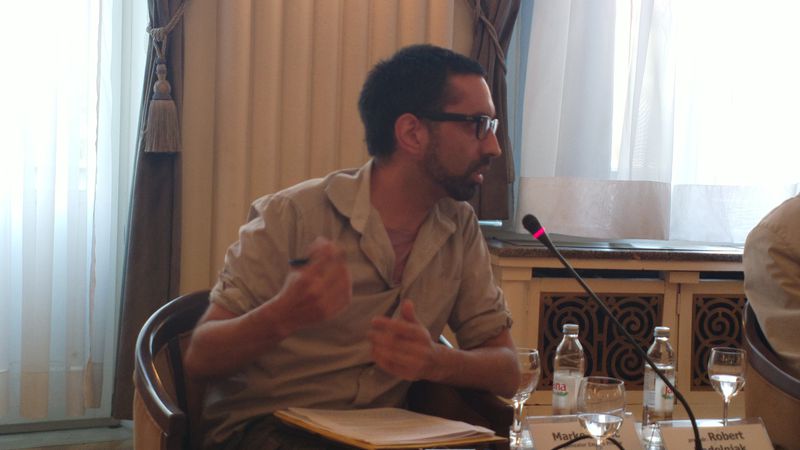 Is the right of same sex marriage a fundamental right? Should it be guaranteed by the Constitution? Should there be a referendum on that? How far should democracy go and is it a sum of past practises or does it allow a change to something unknown? These are only part of the questions that raised the first in Croatia public discussion on the topic "Does the marriage referendum violate the rights of homosexuals?", organised by one of the most circulated daily newspapers in the country Vecernji list. The issue has been gaining speed for several months now, ever since the civil initiative In the Name of Family was launched and which managed in less than two months to collect through tens of volunteers across the country over 700 thousand signatures in support of a referendum at which Croatian citizens to decide whether to amend the Constitution to explicitly enshrine that a marriage is a union only between a woman and a man.
Is the right of same sex marriage a fundamental right? Should it be guaranteed by the Constitution? Should there be a referendum on that? How far should democracy go and is it a sum of past practises or does it allow a change to something unknown? These are only part of the questions that raised the first in Croatia public discussion on the topic "Does the marriage referendum violate the rights of homosexuals?", organised by one of the most circulated daily newspapers in the country Vecernji list. The issue has been gaining speed for several months now, ever since the civil initiative In the Name of Family was launched and which managed in less than two months to collect through tens of volunteers across the country over 700 thousand signatures in support of a referendum at which Croatian citizens to decide whether to amend the Constitution to explicitly enshrine that a marriage is a union only between a woman and a man.
Almost daily in the Croatian public domain there are discussions on this issue, but the first round table was organised this week and gathered together both proponents and opponents of the initiative for a referendum and members of parliament. In an hour, the discussion heated up and revealed purely philosophical questions about the future, the people, the rights, the state and even communism.
The facts
Currently, Croatia has two laws that clearly regulate family relations. One is the family law, in Article 5 of which it is explicitly enshrined that marriage is a union of a man and a woman. In this sense, some of the participants in the round table asked why was the initiative for a referendum necessary at all, since the definition is provided quite clearly in the family law. Separately, there is a law on same sex unions which regulates the personal and property relations of homosexual citizens. Moreover, the law is old enough - it was adopted in 2003. According to the organiser of Zagreb Pride, however, and to 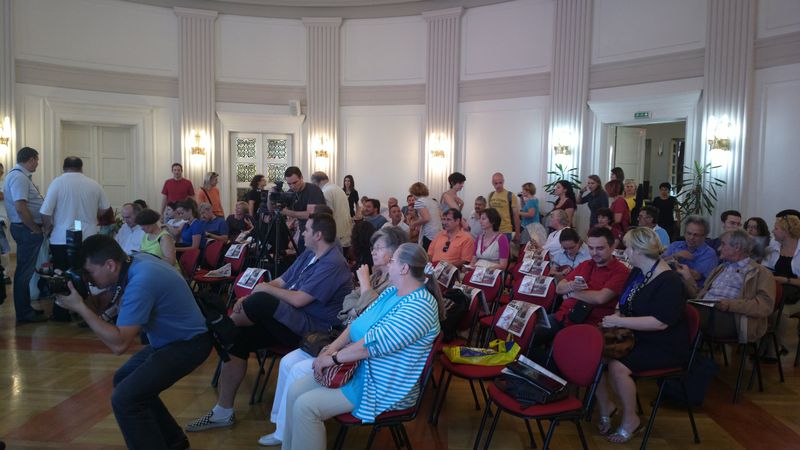 representatives of organisations defending the rights of homosexuals, this law is practically not implemented and it also fails to guarantee the same rights as in the heterosexual unions.
representatives of organisations defending the rights of homosexuals, this law is practically not implemented and it also fails to guarantee the same rights as in the heterosexual unions.
Another issue the discussion raised is why at all should such a conversation take place since the government has no intentions to propose amendments to the Constitution on this issue, neither to change the current legislation. Changes in the legislation are not envisaged, but it is planned in the autumn to be introduced a draft legislation on same sex partnerships. Arsen Bauk, minister of administration, said in an interview recently that the planned draft will ensure the property rights of same sex unions. Mr Bauk explicitly points out, though, that the partnership between homosexual citizens will not be called marriage and they will not be allowed to adopt children.
Why discussing this then?
In fact, the battle is for principles and attitudes. Mark Jurcic from Zagreb Pride believes that the issue is conceptual. We should choose whether we want to be a progressive society or should we follow the example of Belarus and ... Hungary. Yes, Mr Jurcic quoted Hungary as an example of non-free and authoritarian society. Jurcic opposes the initiative In the Name of Family, although he is of the opinion that the available legislation does not cover the needs of the LGBT community. Sanja Juras from the lesbian group Kontra adds that many of the rights heterosexual couples have are not granted to homosexuals. She was indignant with the initiative for a referendum warning that today it could be demanding to enshrine in the Constitution that the marriage is a union of a man and a woman, but tomorrow there could be an initiative for the death penalty, the rights of minorities, etc.
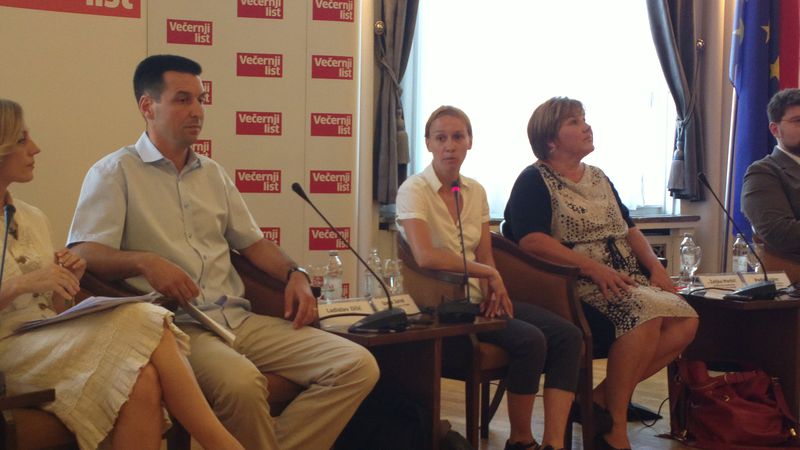 Ladislav Ilcic, chairman of the HRAST political party and one of the founders of the association Voice of Parents for Children, retorted that the next step could then be allowing paedophiles to establish a marriage union with their victims. This remark was met with indignation and whistling in the audience and with a warning from the moderator of the discussion, who said that such a comparison was ridiculous. Ilcic who was a candidate for mayor of Varazdin, insisted, though, that instead of discussing this it was much more important to discuss who governs the country.
Ladislav Ilcic, chairman of the HRAST political party and one of the founders of the association Voice of Parents for Children, retorted that the next step could then be allowing paedophiles to establish a marriage union with their victims. This remark was met with indignation and whistling in the audience and with a warning from the moderator of the discussion, who said that such a comparison was ridiculous. Ilcic who was a candidate for mayor of Varazdin, insisted, though, that instead of discussing this it was much more important to discuss who governs the country.
Robert Podoljnjak, law professor in the Zagreb University, pointed out, however, that the essence of the debate was that for the first time a civil initiative could change the Constitution. It is worrisome to him that the parliament refuses to ask the Constitutional court whether the initiative is in violation of the fundamental law. Gordan Bosanac from the Centre for Peaceful Studies believes that the initiative only seeks to check how democracy works, but added that democracy is not simply a procedure. There will not be a constitutional crisis if parliament does not ask the Constitutional court, but when the question is put to a referendum, Mr Bosanac is convinced.
The co-organiser of the initiative In the Name of Family, Zeljka Markic, supported the thesis that in fact it was about a check of democracy, saying that everybody could undertake whatever initiative they want to amend the Constitution. She had difficulty to win the audience, resenting the fact that she got the floor pretty late and with every sound from the audience she called for respect and honour of the right of opinion. She was also unhappy with the fact that minister Bauk was invited to take part in the round table, but instead the chairman of the parliamentary constitutional committee, Pedja Grbin, participated. Two days after the discussion, In the Name of Family sent an official letter to Vecernji list retorting that it became clear that Mr Bauk would not take part only 10 minutes before the beginning of the round table 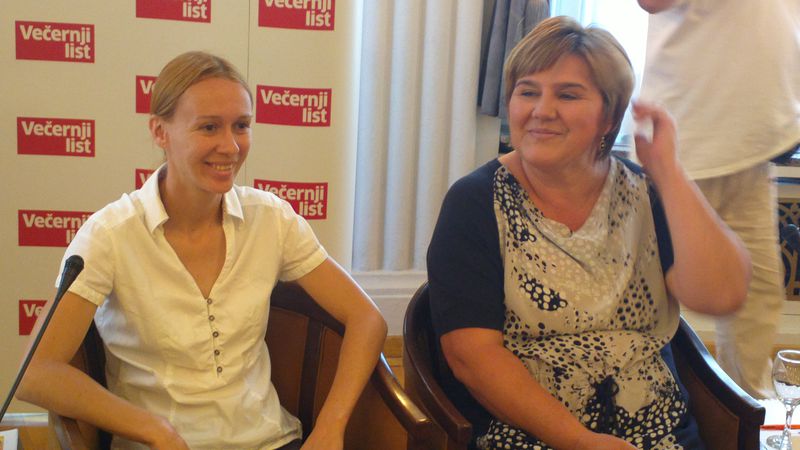 and he was expected to present the latest information about whether enough signatures were collected to initiate a referendum.
and he was expected to present the latest information about whether enough signatures were collected to initiate a referendum.
The issue of signatures is also one of the controversies in Croatia in the past months, because according to some they should be a certain share of the number of voters from the last elections and according to others they must be a share of the overall number of people who are eligible to vote. Criticism to the organiser of the round table were sent also because the promised in advance webcast did not take place.
A cultural revolution in Croatia?
In May, Croatia's Prime Minister Zoran Milanovic said that "a very aggressive group in Croatia is leading a cultural war". He said this on the occasion of the decision of the Constitutional court to reject the sexual education introduced by the Ministry of Education with the argument that there was no broad public debate on the new curriculum which, too, caused heated debates in the Croatian society. The questions whether and who should manage the sexual education of youngsters on which, practically, their attitudes will later depend toward those who are different; whether homosexuals should get married and what rights and duties stem from that; whether this is a dictatorship of minority or democracy is governance of majority, reveal another stage of evolving societies.
In the end of the day, it was not so long when women in Europe did not have the right to vote and in Ireland not even to work if they are married. Until relatively recently, talks about homosexuals in general were a taboo, not to mention if they have the right to live the same way as the "majority". As Gordan Bosanac stated, democracy is not a procedure. This is awareness of all members of society and their needs, rights and duties. Indisputably, democracy needs referenda, civil initiatives and civil activities. It needs non-governmental organisations, protests and any form of statement of violation or uncovered personal rights and freedoms. A matter of maturity is how society will respond to these needs 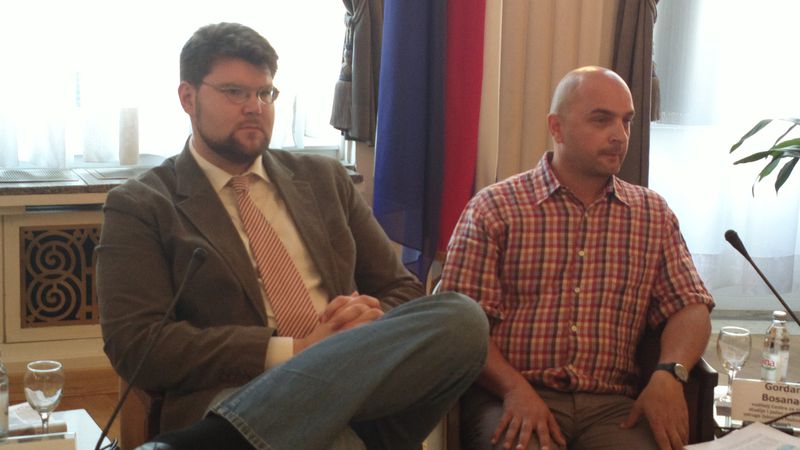 and whether it will hide behind the democratic "procedures", established in a time when publicly acknowledging you are gay was equal to a public suicide.
and whether it will hide behind the democratic "procedures", established in a time when publicly acknowledging you are gay was equal to a public suicide.
For now, it is not clear who will prevail in the situation created by In the Name of Family - will it be the need to check how democratic procedures work or the maturity to recognise that the Constitution is not a document to exercise democracy with. Especially given the fact that amendments to the Constitution will be discussed anyway as demanded by the Social Democrats in the ruling Kukuriku coalition of Prime Minster Milanovic to remove legal prescription of political killings. An initiative launched after the majority managed in a flash to pass changes to the law on legal cooperation with EU member states, thus not allowing a former agent of the Yugoslav secret police UDBA to be extradited in Germany where he is suspected in the killing of a Croatian immigrant.
This autumn, the debate about sexual education is to unwind with new energy and also the new education strategy the government is to present in mid-September. That, too, is part of democracy and its most important part - discussing the important for society issues. In a civilised way, with applause or whistling, but without insults, stigmatisation or aggression. With respect to those who are different and to with respect to law. In this sense, the Croatian society demonstrated maturity which is worth respecting.
 Kolinda Grabar-Kitarovic | © KGK
Kolinda Grabar-Kitarovic | © KGK Jozo Rados | © European Parliament
Jozo Rados | © European Parliament Aleksandar Vucic, Andrej Plenkovic | © Vlada RH
Aleksandar Vucic, Andrej Plenkovic | © Vlada RH